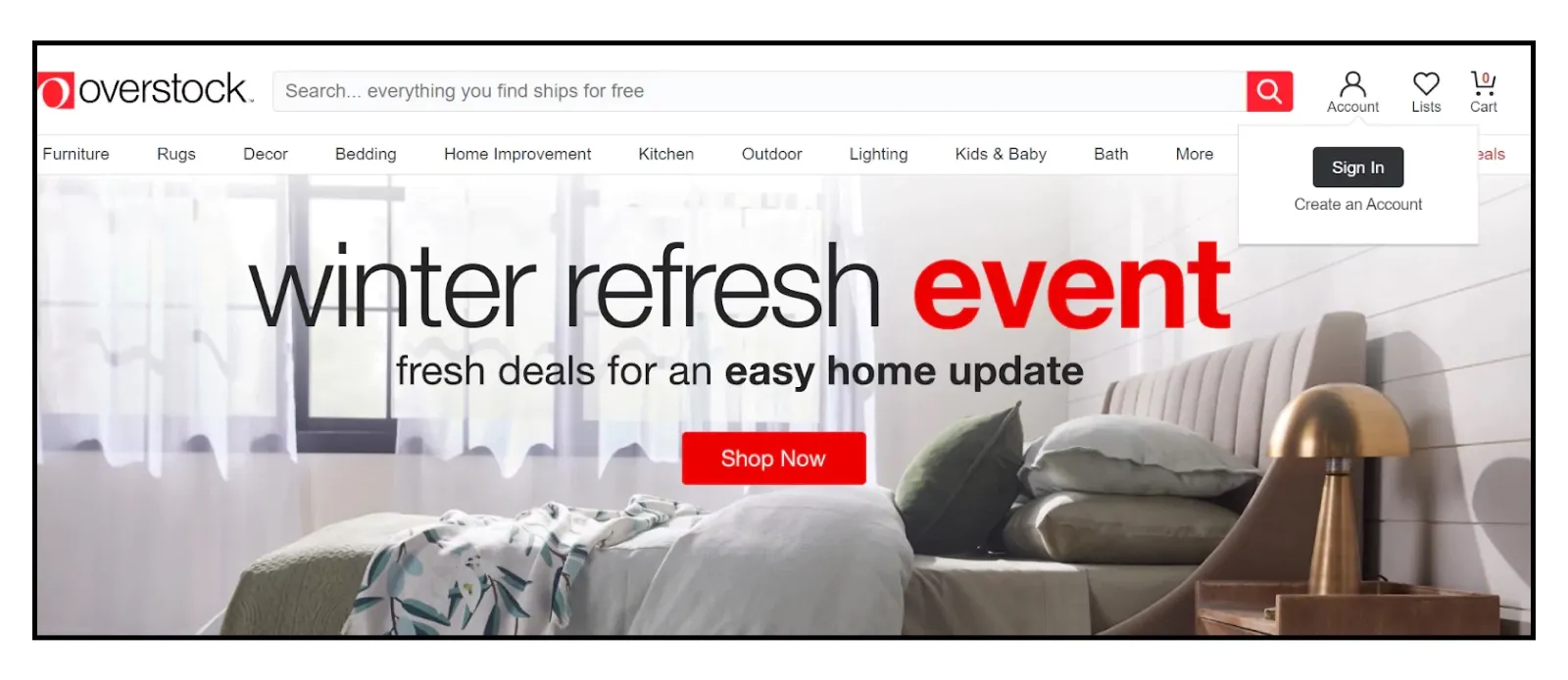From accepting cryptocurrency payments to setting up a digital wallet, there are many steps you can take to position your business for success in this new era of ecommerce. Thus without further adieu – start exploring the potential of ecommerce web3 today and see how it can help your business thrive in the years to come.
With web3 retail taking the online retail world by storm, it’s more crucial than ever to embrace this cutting-edge technology. By implementing web3 ecommerce strategies, you can increase the security and transparency of your transactions, provide a better customer experience, and position your business for long-term success. In this blog, we’ll explore the key steps you can take to prepare your web3 ecommerce business for success in this exciting new era of the internet. Whether you are a small online store or a large multinational corporation, these tips will help you adapt to the changes ahead and position your business for long-term growth and profitability. So let’s dive in and explore the world of web3 and ecommerce together!
Ways for Preparing Ecommerce Business for Web3
With the emergence of web3 and ecommerce, it has become important to implement these cutting-edge strategies in order to boost productivity, efficiency, and customer loyalty. To make the most out of ecommerce business, let us explore some of the most effective methods that can be used for embracing the potential of web3.
1) Understanding Web 3.0 and Its Potential Impact on Ecommerce
To get your web3 ecommerce ready for business, it is crucial to grasp the concept’s essence. This upcoming internet era revolves around prioritizing users’ needs, safeguarding their privacy and security, and distributing power more evenly. As an ecommerce entrepreneur, embracing Web 3.0 can open up new horizons to connect with customers, enhance transparency and responsibility, and revolutionize the way transactions take place. The metaverse, with its immersive and interactive virtual world, presents ecommerce businesses with unprecedented opportunities to engage customers, personalize shopping experiences, and create new revenue streams. Ecommerce has already transformed the way we shop, but with the rise of metaverse technologies, it is poised to undergo yet another revolution.
By staying ahead of the curve and embracing the user-centric values of Web 3.0, ecommerce businesses can position themselves for success in the evolving digital landscape.
Metaverse technologies are gaining traction in the fashion industry. In the year 2021 of November, Nike became one of the early adopters of this trend. The sportswear giant partnered with Roblox to launch “Nikeland,” a micro metaverse that offers players a virtual playground to engage with the Nike brand. Within the metaverse, players can not only shop for virtual goods to dress their in-game avatars but also participate in games alongside celebrity guests such as LeBron James, making for an immersive and interactive shopping experience.

2) Implementing New Payment Options
As Web 3.0 takes hold, it brings along novel payment alternatives, including crypto wallets and decentralized finance (DeFi) systems. These payment options hand customers greater authority over their financial dealings, as well as heightened levels of security and confidentiality. To stay ahead of the curve, Web3 ecommerce businesses must embrace this shift and incorporate these new payment options into their website, while also educating their customers about the features and benefits of these payment methods. This way, ecommerce entrepreneurs can provide their customers with enhanced payment flexibility and establish themselves as forward-thinking industry leaders. One of the most significant benefits of accepting cryptocurrencies is the added layer of security they offer to web3 ecommerce transactions.
Overstock.com is an online marketplace based in the United States that offers a broad spectrum of products, ranging from furniture, home decor, and electronics, to clothing, and jewelry, among others. It gained recognition for being an early adopter of Bitcoin as a payment option, starting in the early part of 2014.

It also provided a feasible alternative to customers who couldn’t use traditional payment options such as credit cards. Overstock.com currently accepts several other cryptocurrencies besides Bitcoin, including Ethereum, Litecoin, and Bitcoin Cash.
3) Anticipating and Responding to the Challenges and Risks of Web 3.0
The Web 3.0 ecommerce era prioritizes decentralization, and ecommerce businesses will need to shift their mindset from centralized control to community-driven engagement. This could involve building partnerships with other businesses or blockchain projects, as well as leveraging social media and other community-driven platforms.
Furthermore, there may be a learning curve for businesses unfamiliar with blockchain technology and how it can be used in ecommerce. To overcome this challenge, businesses can invest in training for their employees, seek out expert advice, and stay up to date on the latest developments in the blockchain and cryptocurrency space.
Finally, it is important to keep in mind that Web 3.0 ecommerce is still a rapidly evolving landscape, and new opportunities and challenges will continue to emerge. Therefore, ecommerce businesses must remain adaptable and open to change, while also staying true to their core values and mission. By doing so, they can position themselves for success in the Web 3.0 era and beyond.
Amazon is a well-known e-commerce website that provides customers worldwide with a vast selection of products and services. One of the primary factors that have contributed to Amazon’s success is its emphasis on customer privacy and security.
Amazon employs SSL/TLS encryption to safeguard customer data during transmission. SSL/TLS, which stands for Secure Sockets Layer/Transport Layer Security, is a cryptographic protocol that helps secure communication between the customer’s web browser and the Amazon server. This implies that any sensitive information customers enter while shopping on Amazon, such as credit card information or personal details, is encrypted and protected during transmission.
4) Preparing Your Website for Decentralized Technology
As Web 3.0 takes hold, it brings along novel payment alternatives, including crypto wallets and decentralized finance (DeFi) systems. These payment options hand customers greater authority over their financial dealings, as well as heightened levels of security and confidentiality. To stay ahead of the curve, Web3 ecommerce businesses must embrace this shift and incorporate these new payment options into their website, while also educating their customers about the features and benefits of these payment methods. This way, ecommerce entrepreneurs can provide their customers with enhanced payment flexibility and establish themselves as forward-thinking industry leaders.
Origin is an ecommerce platform that operates on a decentralized network with the aim of creating a transparent and equitable marketplace for both buyers and sellers. By using blockchain technology and smart contracts, the platform allows for secure and transparent transactions without the need for a centralized intermediary. This reduces fees and creates a more efficient and cost-effective experience for all parties involved.
Origin stands out among other web3 ecommerce platforms due to its emphasis on data privacy and user control. It grants users greater control over their data and transactions, providing them with the ability to own and monetize their data. Furthermore, Origin’s decentralized architecture guarantees secure storage of user data that cannot be accessed or manipulated by third parties.
5) Building an Engaged and Empowered Community
In the Web 3.0 era, ecommerce businesses must prioritize building and nurturing a devoted customer base, as the community and user empowerment take center stage. One way to achieve this is through the use of decentralized social networks and forums, enabling customers to connect with each other and exchange their experiences with your brand. By cultivating a robust and engaged community, you can establish a sense of trust, inspire loyalty, and ultimately drive sales. This emphasis on community-building is a core tenet of Web 3.0 ecommerce businesses that embrace it can position themselves for long-term success.
Single.xyz is a platform that aims to build an engaged and empowered community by providing a range of features and initiatives that foster collaboration, support, and inclusivity among its users. There are many ways in which Single.xyz builds an engaged and empowered community namely user-centric design, community-driven initiatives, inclusive policies, and personalized support.
How to use NFTs on your Shopify store?
By implementing these strategies, ecommerce businesses can leverage the power of NFTs on the Shopify platform to increase engagement, drive sales, and remain competitive in the ever-changing digital landscape.
1. Offer NFTs as incentives: Consider giving away NFTs for free to customers as a way to encourage purchases, active participation, and loyalty.
2. Token-gated commerce: Provide special benefits to customers who hold NFTs, such as early access to new releases or discounted prices.
3. Collaborate with other brands:Expand your customer base by teaming up with other businesses for token-gated online stores or live events.
4. Segment customers by NFT holdings:Divide your customer base into segments based on their NFT holdings and use this information to tailor your marketing strategies for better customer acquisition and retention.
Conclusion
With the growth of the online business world at a rapid pace, it has become more important than ever for ecommerce businesses to stay ahead of the curve with the latest technologies and trends. To get hold of cutting-edge tools and methods that can enhance the security, engagement, and transparency of your retail business, web3 ecommerce can come to the rescue. You can capitalize on the many opportunities offered by this emerging technology with the right mindset and approach, and also build a sustainable, customer-focused business. One can easily stand out from the competition and meet the ever-evolving demands of the market with the aid of the right tools and strategies in place. By taking proactive steps to prepare your ecommerce business for the era of web3, you can unlock new possibilities for growth and success. Whether it’s integrating new payment options, building a community of loyal customers, or addressing security and privacy concerns, the right preparation can set your business up for long-term success. Thus an individual can embrace the potential of web3 ecommerce today to elevate the online retail business to the next level.
You may also like
Essential resources for your success















